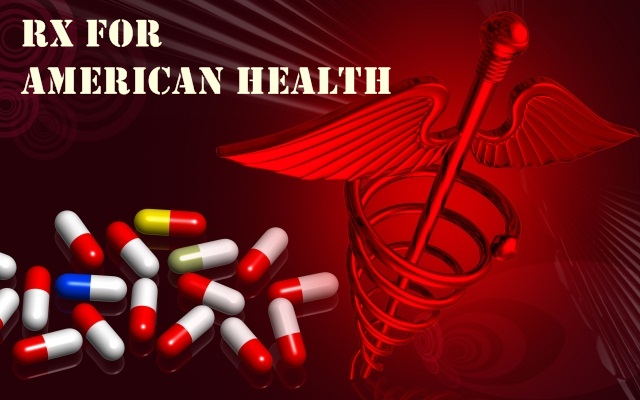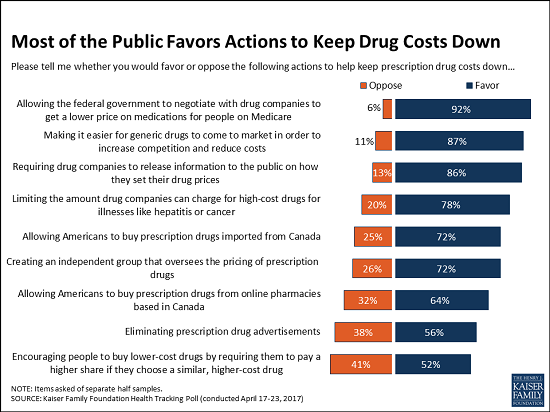Prescription medicine costs re-emerge as issue—The past few weeks have seen a rush of activity regarding prescription drug costs generally and moves within the Obama Administration and FDA with the pharmaceutical industry specifically.
Most troublesome are strategies to restrict access to imported medicines by the imposition of new legislation that would limit ‘infringement’ of claimed intellectual property rights of Pharma, even to the extent of shutting down Internet operations/web sites that support ‘activities’ that the government finds have aided such ‘infringement’ with support of a contrary position such as support of importation.
At the same time, there is an increasing realization that the price increases of Pharma are prompting increasing numbers of Americans to cut back on their prescriptions.
To gain a perspective on the breadth of the emerging debate, here are the issues in thumbnail:
· What is the impact of PhRMA’s ‘cost-cutting’ on its revenues? Bloomberg reports that the industry will see its revenues from the deal drop by less than one-half of one percent, and because it will receive as much as 32 million new customers under the provisions of Obamacare, the ‘deal’ was a significant win for Pharma. The article also points out that the deal helped Pharma avoid other actions such as importation of prescription drugs and Part D price negotiation.
· The failure of cutting the costs of the Part D Doughnut Hole—Because Pharma’s part of the deal with the Administration does not take effect until next year, it was able to initiate price increases of as much as 10 percent (reported on in earlier wraps) on brand name drugs—increases that are being paid for by Seniors and other Medicare beneficiaries. One perspective of the scope of the problem is offered in a NY Daily News story on how to cut costs for those in the Doughnut Hole.
· There is growing suspicion of the impact of the deal made with Pharma—The Washington Post reports many believe that Pharma will skirt the deal with the Administration with price increases.
· The Heritage Foundation reports that the Administration deal with Pharma might actually provide an excuse for Pharma to raise prices.
· Stories are beginning to appear about Americans turning to Canadian pharmacies to cut drug costs. The Dallas News reports on one Senior’s plight.
· The New York Times offers an indication of Pharma’s willingness to act with total disregard for law and ‘deals’ by its willingness to “…flout a federal law that requires them to provide the government with pricing data needed to calculate discounts on medications prescribed for poor people…”
· There are other ongoing examples of Pharma’s disregard for fairness and obeying the law:
o New Jersey Pharmaceutical Company Settles Medicaid Fraud Allegations for $2M
o In Hawaii, a leading newspaper is calling for making the terms of a settlement with Pharma public, saying that the public has a “strong interest” in making the terms public. A lawyer for an unnamed pharmaceutical company is saying they should be kept confidential.
· Increasing numbers of Americans are skimping on their prescription drugs due not only to drug costs, but because of moves by insurance companies to reduce costs—The Wall Street Journal reports on the impact of insurance companies increasing co-pays and higher deductibles—steps aimed at decreasing costs—leading to an increase of 55 percent of ‘abandonment’ of prescriptions—drugs ordered but not picked up by consumers.
· States continue to struggle with the impact of high drug prices—In North Dakota, the question of who should own a pharmacy is debated. The state statute reads that an in-state pharmacy must be majority-owned by licensed pharmacists, but some claim this restriction leads to higher prices.
· In light of stepped-up seizure activity by the FDA of imported medicines,, we entered a blog on the FDA actions and Pharma’s attempt to make the U.S. a safe haven for its predatory pricing. We also issued a release criticizing the seizures (The Inspectors making the seizures said Lipitor was a new, unregistered drug and was unsafe...so much for the rationale for seizures when the world's largest selling drug is seized on such a false claim..)
FDA in Pharma’s Pocket—Despite the record of Pharma misdeeds, of which only some are included above, the FDA actions with the Partnership for Safe Medicines , a PhRMA front group (reference blog mentioned above to understand PhRMA control of PSM) on a number of fronts is troublesome:
· FDA Commission Margaret Hamburg is the new Poster Girl for PhRMA. She spoke at the meeting sponsored by PSM on counterfeit medicines, then in a display that made her look more like a spokesperson for PhRMA than an FDA Commissioner, she conducted a Q-A session before a backdrop emblazoned with the logos of all of PhRMA’s members. A video of the Q-A session is available on the C-Span site.
Earlier I mentioned copyright ‘infringement’ as a new tactic by PhRMA and the FDA to attack importation:
o The White House ‘summoned’ a by-invitation only meeting for ICANN and other internet-related domain services to discuss ‘counterfeit’ products and sites that promote them, including ‘rogue pharmacies’ In an act of political courage, ICANN refused to attend the meeting..
o This did not stop Attorney General Eric Holder from ‘touching’ on ‘illegal web-based pharmacies; in a speech on opiate abuse. Note the linked article is on the PSM web site.
o Concurrently, stories are beginning to appear again about the lack of safety of ‘Canadian pharmacies.’ These are, of course, totally inaccurate since the safety and efficacy of prescription medicines from licensed, registered pharmacies in Tier One countries is based upon meeting standards that meet or exceed those of the U.S.
· In a bitter irony, Commissioner Hamburg, whose primary responsibility if the safety of foods and medicines, approves and supports the continued use of Avandia, making the U.S. the only country in the world where the sale of the drug is approved. Her rationale: It’s the only alternative for people with Type 2 Diabetes, so we are witnessing the spectacle of an FDA official who says that proven safe, affordable medicines from Tier One Countries are dangerous and the government must take actions to protect Americans from these ‘unsafe’ medicines, it is quite OK to put Diabetics at risk of heart attack or stroke. I shall be writing a blog on this.

